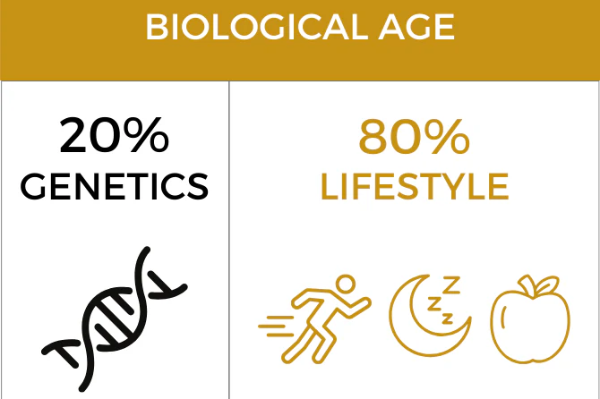Biological age refers to the rate at which a person is aging physically.
Biological age refers to the rate at which a person is aging physically, as opposed to their chronological age which simply counts the number of years they have been alive. It provides a more accurate measure of an individual's overall health and functional state compared to chronological age.
Key aspects of biological age include:
1. Measurement: Biological age is determined by analysing various biomarkers in the human body. These biomarkers can include:
- Physical characteristics: Blood pressure, vision, hearing, and joint mobility
- Molecular markers: Telomere length, certain proteins in the bloodstream, and inflammatory markers
- Epigenetic markers: DNA methylation patterns, often referred to as the "epigenetic clock"
2. Variability: Unlike chronological age, which increases at the same rate for everyone, biological age can vary significantly between individuals of the same chronological age. This variation is due to a combination of genetic factors and lifestyle choices.
3. Influencing factors: Biological age is affected by:
- Genetics (accounting for approximately 20-30% of biological age)
- Environment
- Lifestyle choices (diet, exercise, stress management)
- Microbiome composition
4. Health implications: Biological age is considered a better indicator of healthspan (years lived in good health) and can be more predictive of mortality risk and the onset of age-related diseases than chronological age.
5. Potential for modification: Unlike chronological age, biological age can potentially be slowed down or even reversed through lifestyle interventions and other strategies.
Understanding and measuring biological age is becoming increasingly important in the fields of gerontology and personalised medicine. It offers the potential for early detection of rapid agers and the opportunity to implement interventions that could delay, change, or even reverse the trajectory of biological ageing.
